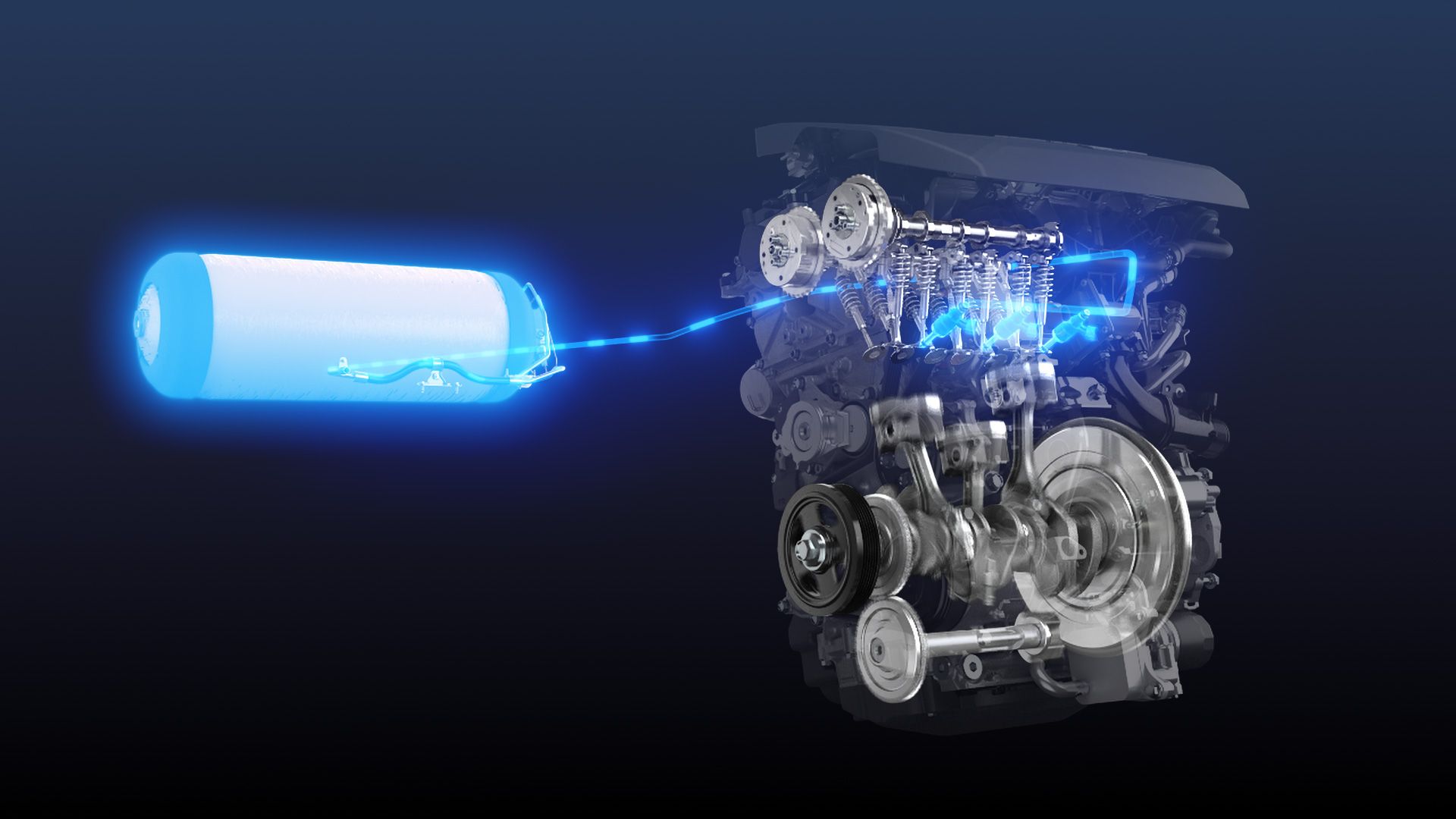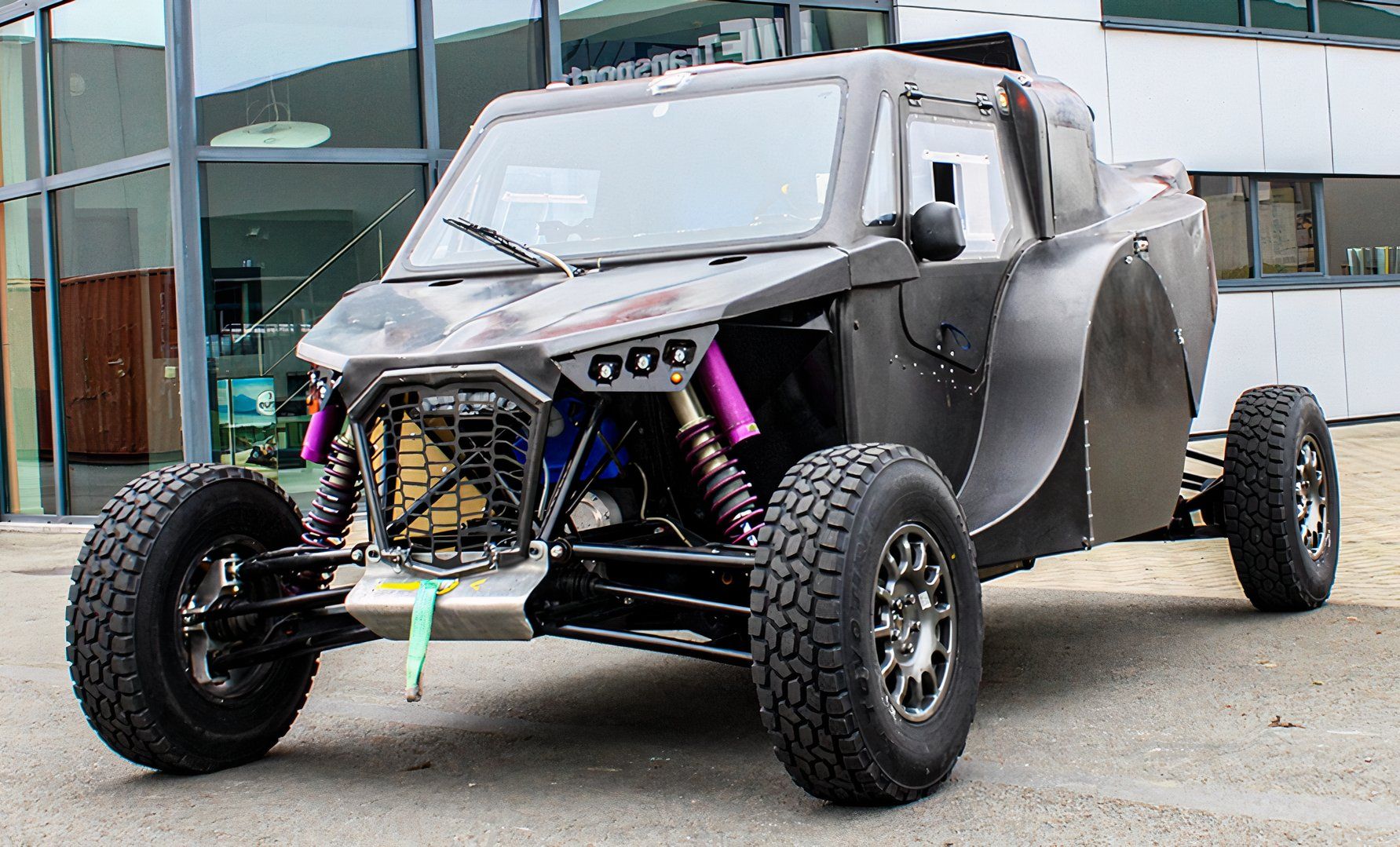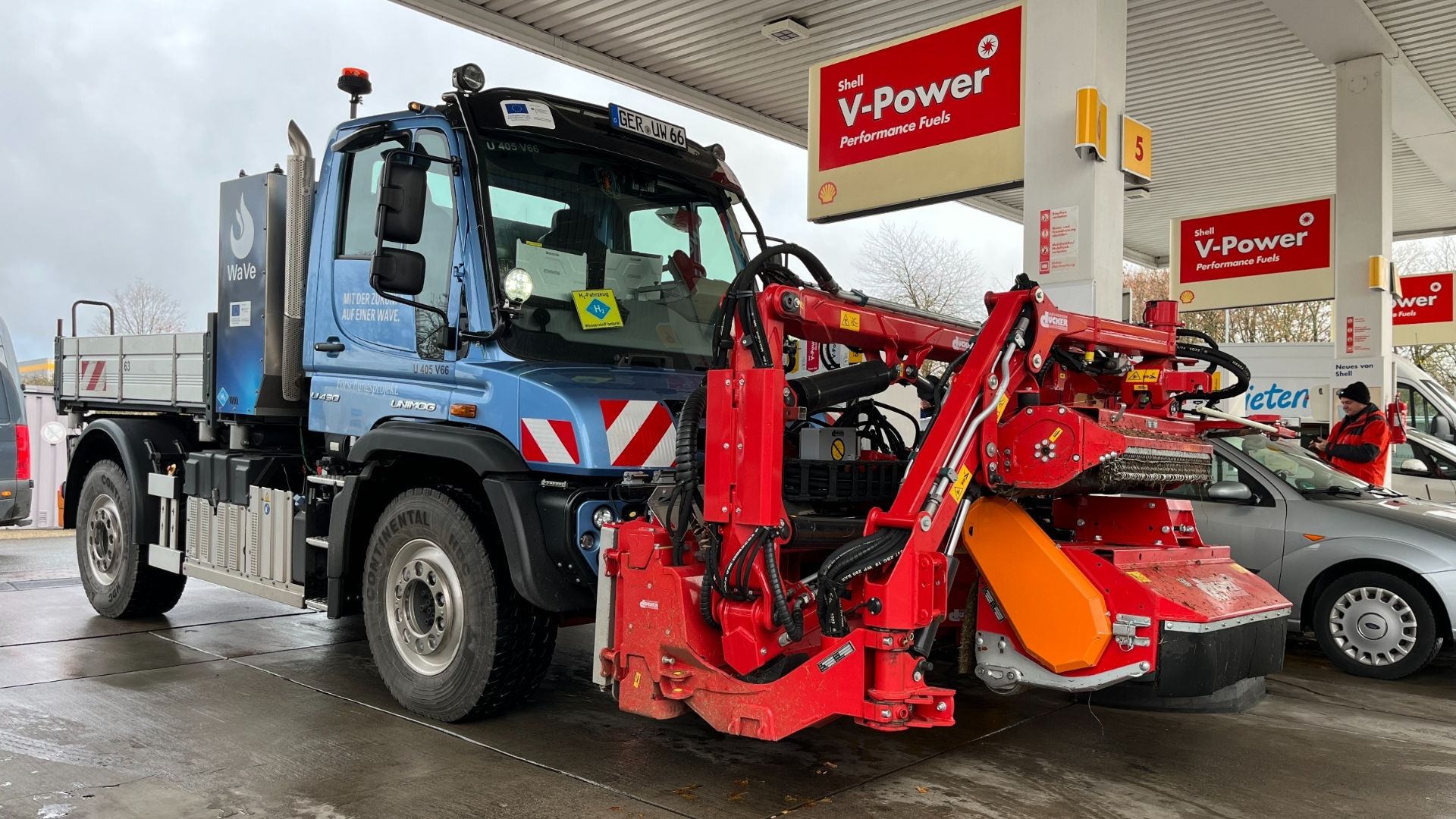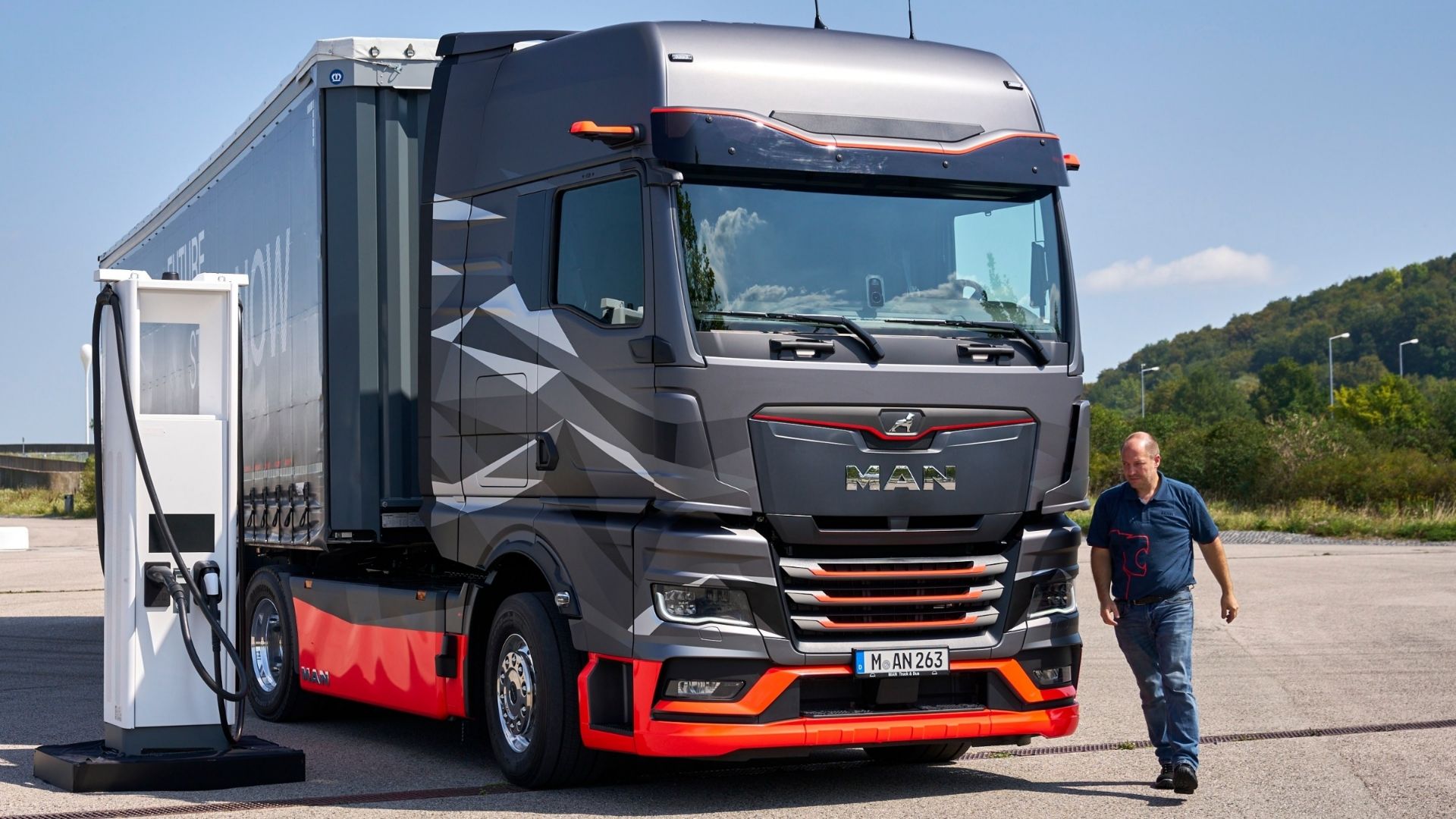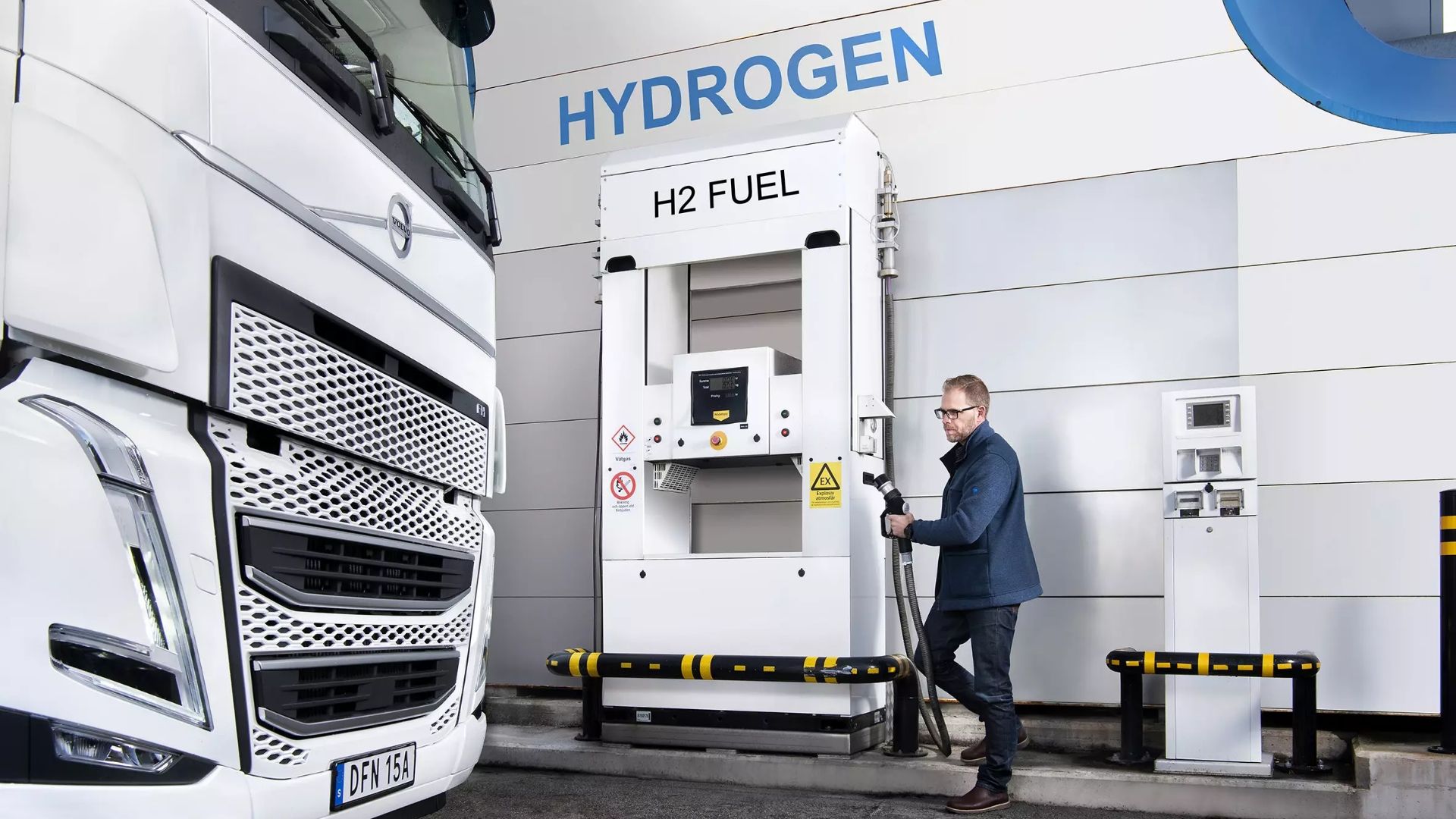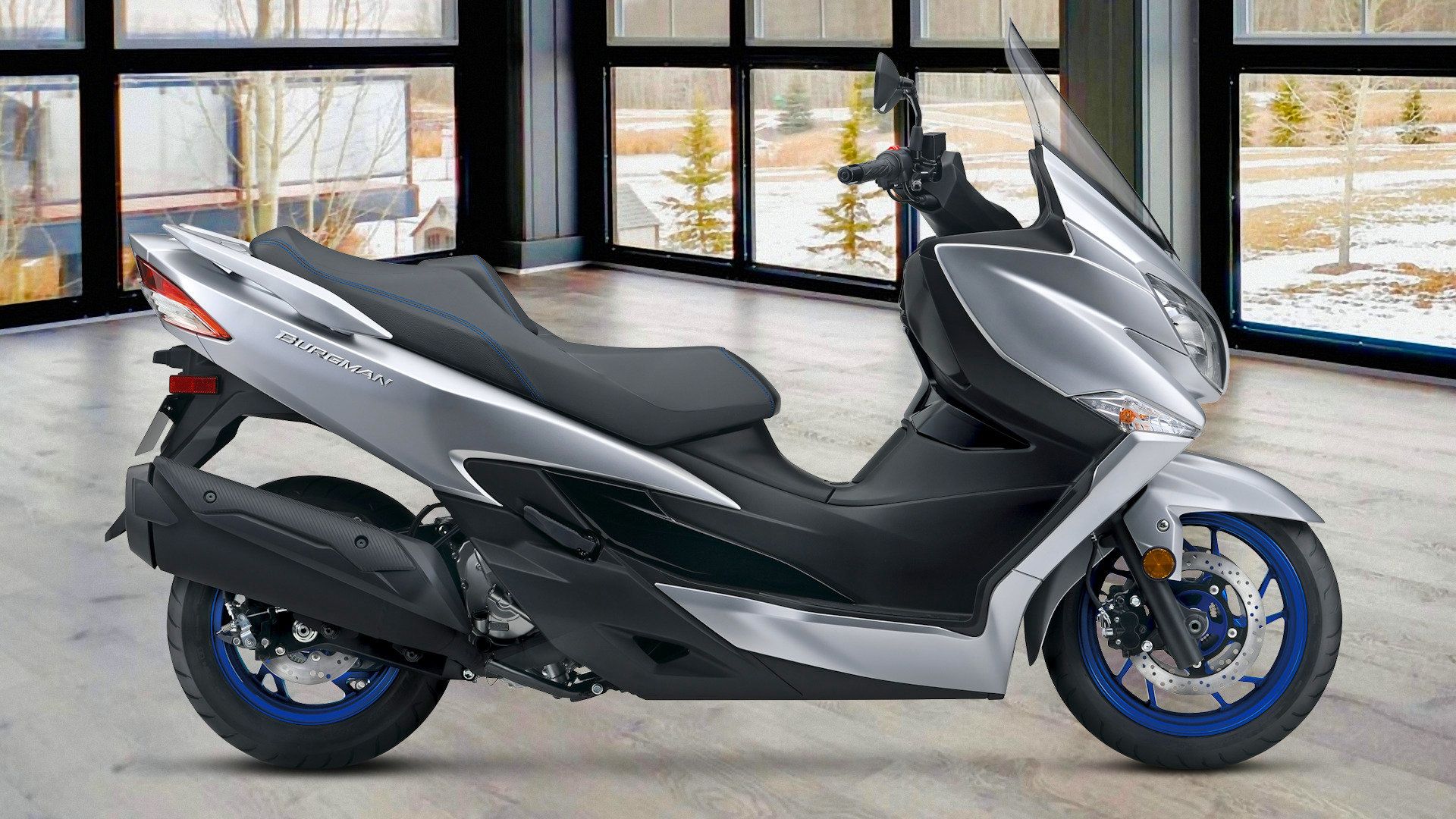As 2024 sees the automotive industry race to maximize the efficiency – and profitability – of hydrogen fuel cell technology, manufacturers like Toyota and Volvo are investing in a different kind of sustainable power. Hydrogen-powered internal combustion engines have emerged as attractive alternatives to traditional gasoline-powered internal combustion engines.
Briefly, these engines produce power from combusting hydrogen in place of gasoline or diesel. While this greatly reduces the impact that driving a vehicle has on our environment, hydrogen combustion is still not considered “zero emission”, meaning that the nitrogen-based gases it produces still have a negative effect. Despite this, many manufacturers continue to innovate in the technology as part of their “green” initiatives.
UPDATE: 2024/11/29
With the advancement of climate science, it’s more important than ever that consumers continue to be well-informed. As TopSpeed.com aims to be your reliable, one-stop source of automotive news, the following information has been updated where necessary in order to be as accurate as possible.
In order to give you the most up-to-date and accurate information possible, the data used to compile this article was sourced exclusively from manufacturer websites.
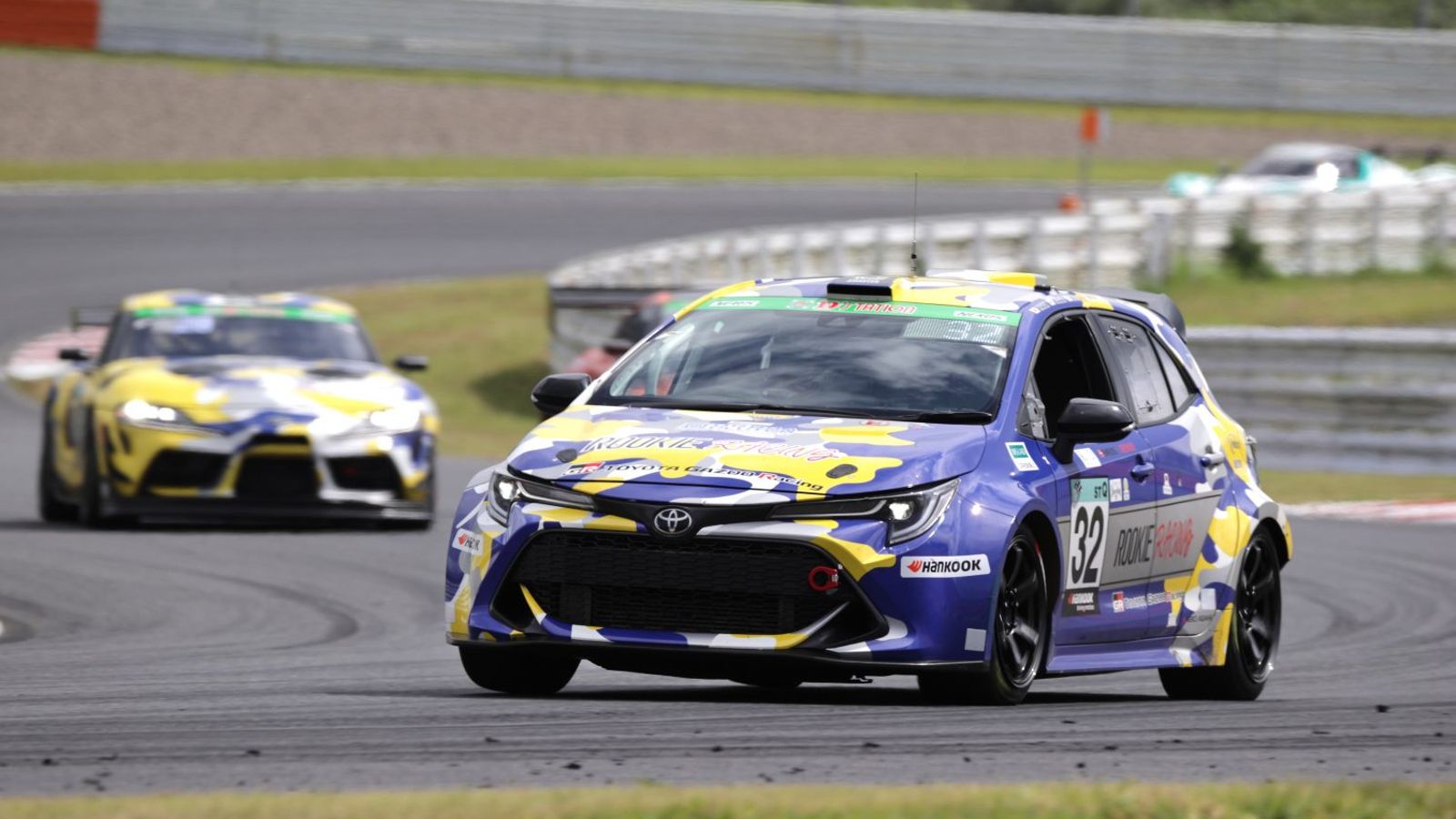
Related
Toyota’s water-cooled hydrogen engine aims to challenge EVs with long range, fast refueling, and powerful performance.
1
HySE
A collaborative project dubbed HySE (Hydrogen Small mobility & Engine technology) by manufacturers is a joint effort exploring the potential of hydrogen internal combustion for use in small vehicles. As of 2024, the group consists of brands Kawasaki, Kawasaki Heavy Industries, Suzuki, Honda, Yamaha, Toyota and DENSO CORPORATION.
Supercharged Hydrogen Pocket Rocket
Having already proven themselves by achieving fourth place in the 2024 Dakar Mission 1000 ACT2 with their initial effort, the HySE-X1, the collective of manufacturers is now preparing their entry for the 2025 race. The Dakar Mission 1000 ACT2 rally is a variant of the traditional race that’s open for participants innovating in alternative fueling technologies.
HySE’s upgraded contender, the HySE-X2, will serve as a platform on which to test the robustness of hydrogen combustion technology in extreme environments. The vehicle uses a supercharged hydrogen combustion engine and features an upgrade in hydrogen capacity over the HySE-X1 thanks to an improved chassis design.
Performance Specifications
|
Powertrain |
Liquid-cooled, 4-stroke, inline four-cylinder, supercharged engine |
|
Hydrogen Tanks |
4x 7.2KG Tanks Equipped @ 70 MPa |
|
Weight |
1,250KG |
|
Dimensions |
4,000 mm x 2,000 mm x 1,900 mm (length x width x height) |
2
Toyota
Toyota has centered its approach to developing new technologies on diversifying its commitment towards near-zero power. Alongside the hydrogen fuel-cell-powered Mirai, Toyota has been testing a prototype hydrogen combustion road car since 2022. A development on the 1.6-liter, 3-cylinder turbo platform used in the GR Corolla, the Corolla Cross Hydrogen Concept – also known as the GR Corolla H2 – uses an engine modified to produce its power using high-pressure direct injection of hydrogen.
Hydrogen-powered Endurance Racer
Aiming to refine their design in a demanding environment, Toyota entered the concept car into Japan’s Super Taikyu endurance race. Running at maximum efficiency under race conditions, the result proved a 24 percent increase in combustion power, a 33 percent increase in torque, a 30 percent extension in range, and a reduction in refueling time from five minutes down to just 90 seconds. With real-world evaluation and digital development ongoing, the GR Corolla H2 is due to begin winter testing in northern Japan sometime soon.
3
Bosch
Behind the scenes of the automotive market, German giant Bosch is the world’s largest manufacturer of car parts. Bosch first announced a hydrogen combustion engine in 2024, having re-positioned their approach to hydrogen combustion to favor use of the technology in heavy commercial vehicles. They say their technology offers scalable, hydrogen-fueled power delivery with the advantage of leveraging expertise from across Bosch’s wide-ranging portfolio.
Hydrogen Powered Le Mans Racer
In 2023, Bosch partnered with Ligier Automotive to construct a prototype hydrogen-powered vehicle using the Ligier JS2 R platform. The Le Mans racecar featured a 3.0-liter bi-turbo hydrogen engine that produced an output of 563 horsepower and 479 pound-feet of torque through a reworked injection system. Since then, no further developments in hydrogen combustion have been made regarding road cars. With Bosch announcing widespread cuts across its European workforce, time will tell if their technology becomes available in something you can drive to the shops.
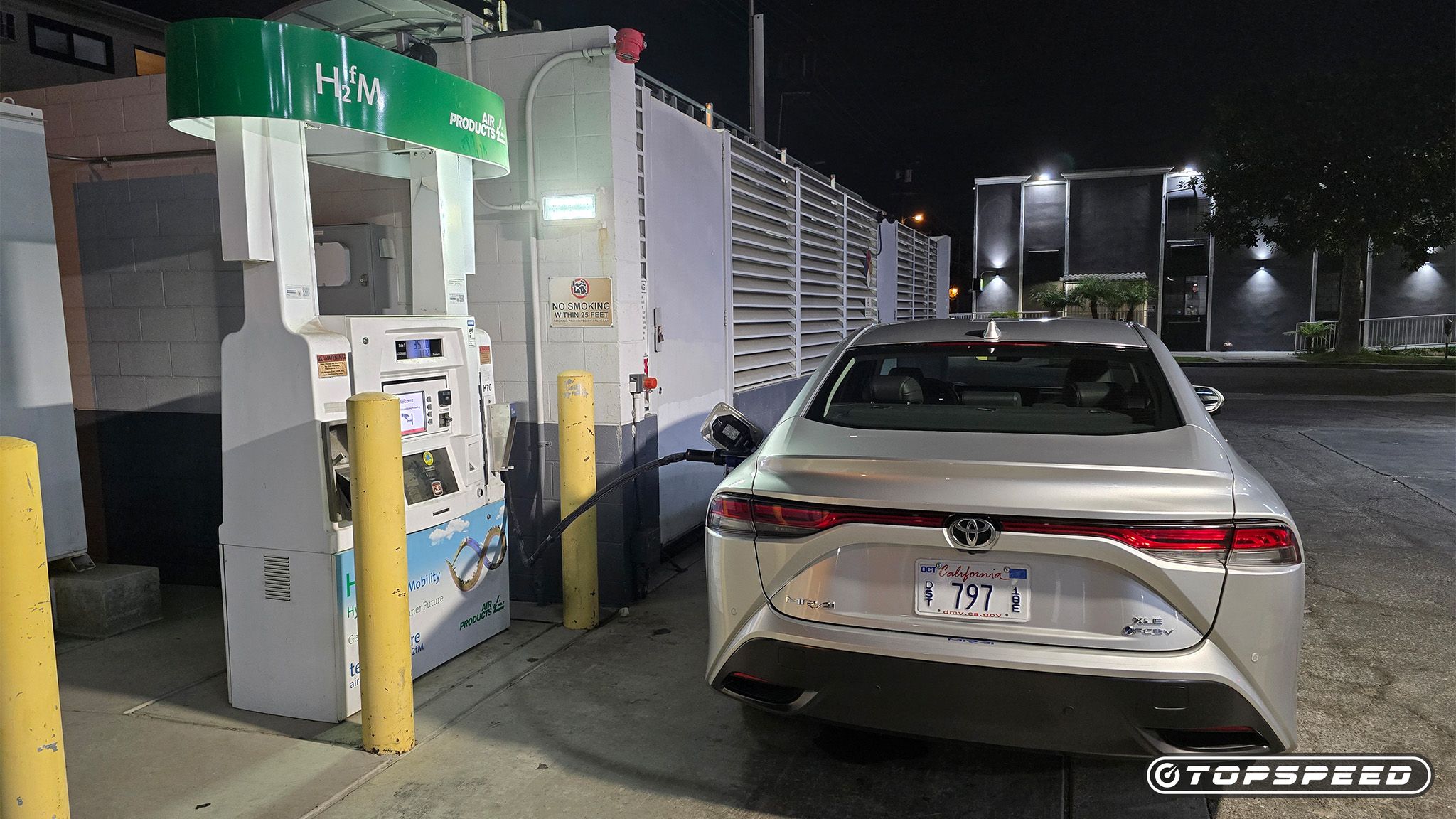
Discussion
I spent a week in Los Angeles testing the 2024 Toyota Mirai, the only region where it’s possible to do so as California is the only place in the country where they’re available and leased to the public, and where there’s hydrogen filling station infrastructure. Although I spent the prior week testing a short string of seductive Italian thoroughbreds (two Maseratis), the science nerd in me thought the Mirai was coolest car out I tested out in LA. Do you think hydrogen fuel-cell-powered vehicles, or fuel-cell electric vehicles, are the future? Discuss.
4
Cummins
At the 2022 ACT Expo in Long Beach, California, powerplant manufacturer Cummins revealed the design for a 15-liter hydrogen engine. Built on a “fuel-agnostic platform”, it is planned that engines of different fuel types will share largely similar components from the head gasket down in order to provide efficiency and stretch the feasibility of the supply chain, resulting in decreased costs and increased profits. The company at the time promised to put this engine into full production by 2027, though no progress has been reported as of 2024.
Despite this, in testing the medium-duty engine achieved impressive results, surpassing both power and torque targets to make 810 pound-feet of torque and 290 BHP. More recently, Cummins have partnered with NPROXX in further development of hydrogen storage technology.
5
NamX
Afro-European startup NamX is pioneering a hydrogen internal combustion engine for its debut vehicle, the HUV (Hyrdogen Utility Vehicle), a departure from its earlier focus on fuel-cell electric models. Designed by Italian firm Pininfarina – yep, that Pininfarina – the NamX HUV is currently available for preorder – but only in cash. Still, NamX says more traditional finance options will be offered to customers closer to the time, with delivery slated for Q4 2026. The HUV will be available in two trim levels:
|
NamX HUV GT |
NamX HUV GTH |
|
|---|---|---|
|
Price |
from €75,000 |
from €95,000 |
|
Horsepower |
300 BHP |
550 BHP |
|
0-60km/h |
6.5 seconds |
4.3 seconds |
|
Range |
800km |
800km |
Quirky Refueling And A Hydrogen V-8
NamX’s intriguing solution to the challenges presented to the industry in refueling makes use of what it calls capsules, portable hydrogen storage units that you carry with you and simply replace when running out of range. In turn, they provide power to a 6.2-liter, four-stroke V-8 engine which is to be supplied by Solution F. Could this all-new way of doing a V8 be a suitable replacement for the engine that we know and love?

Add TopSpeed to your Google News feed.
6
Daimler
Daimler-owned Mercedes-Benz Special Trucks and partner Mörtlbauer have successfully engineered two vehicle prototypes on their Unimog U 430 platform that utilize a hydrogen combustion engine. After having been in development for over two years, both industrial-use vehicles have already undergone testing in all aspects of operations including driving, working and refueling. Significantly, Daimler says that its new hydrogen combustion engine requires only minor modifications to current fleet vehicles and can be used in a similar way to current diesel engines.
Project WaVe
Project WaVe aims to produce a practical near-zero solution to special-purpose motoring. The specially engineered prototypes are designed with high-pressure tanks that can hold up to 13kgs of hydrogen and the engine produces a power output of 290 horsepower, in doing so making much less noise than the diesel equivalent. The project commenced in July 2021, funded by 18 partners from Germany’s industry and science sectors together with the Federal Ministry for Economic Affairs and Climate Protection.
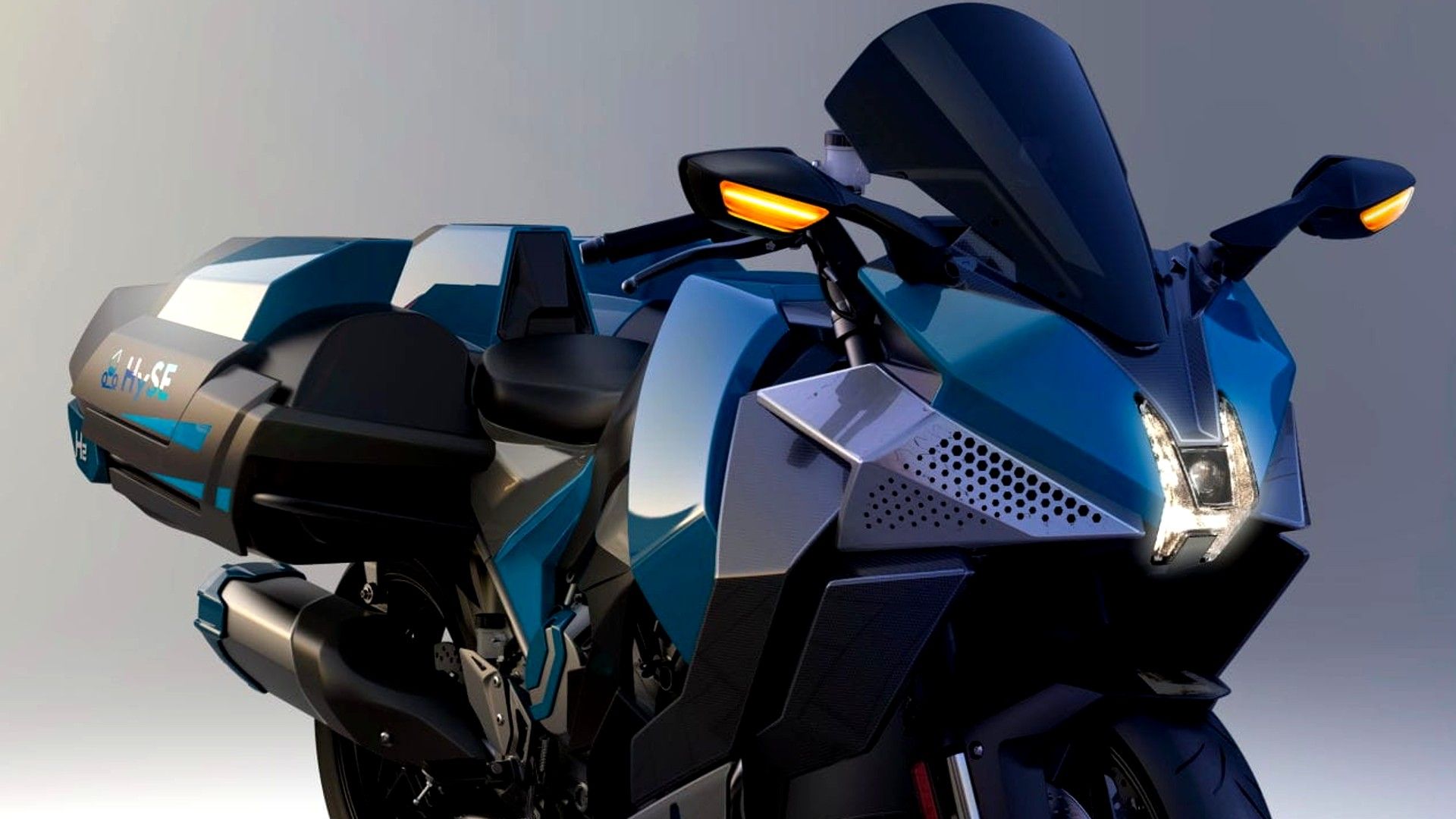
Related
After The Hybrid Ninja, Kawasaki Shows World’s First Hydrogen Sports Bike By Kawasaki
Real-world testing of Kawasaki’s hydrogen-powered beast is set to begin next year
7
MAN
MAN unveiled their new MAN H4576 hydrogen combustion engine at Agritechnica in 2023. Leveraging its extensive experience in the field, MAN Engines has developed the new hydrogen-powered engine based on the proven D3876 diesel engine, with 80 percent of parts being identical. The MAN H4576 engine is a larger 16.8-liter variant compared to its diesel counterpart’s 15.3-liter and will deliver 500 horsepower.
The PistenBully 800, the truck that currently utilizes the MAN D3876 diesel engine is designed to facilitate seamless integration with the MAN H4576, with strategically allocated space for hydrogen tanks. MAN also aims to use hydrogen combustion in conjunction with other fuels such as HVO, as demonstrated by the hydrogen dual-fuel 12-cylinder V MAN D2862 engine that has been powering the wind farm supply ship Hydrocat 48 since mid-2022.
8
Volvo
Working alongside Westport Fuel Systems, in March 2024 Volvo Group debuted Cespira, a joint venture aimed at developing a high-pressure gas injection fuel systems (HPDI) for specialist commercial, long haul and off-road use-cases. Volvo has so far made a substantial investment in hydrogen technology, focusing on both fuel-cell applications and also utilizing hydrogen as a renewable fuel for combustion engines.
To venture further into the realm of hydrogen combustion engine technology, the Volvo Group has initiated a VICE scholarship project, selecting two PhD students to conduct vital hydrogen-based research at the Chalmers University of Technology and Lund University, both in Sweden, with the scholarship starting in 2024 and expected to continue into the future, supporting the manufacturer’s ambition to be fully carbon-neutral across the brand by 2040.
9
Suzuki
As well as its collaboration in the HySE project, Suzuki has been working on hydrogen combustion engine technology since displaying Crosscage concept motorcycle in 2007. The company has also released a few hydrogen-powered Burgman scooters since 2010, which have used hydrogen fuel cells to power electric motors ,and in 2023, the company released a hydrogen-powered modified version of the Burgman 400 scooter, a prototype that uses a hydrogen-powered internal combustion engine and features an elongated wheelbase to accommodate its hydrogen fuel tank.
Suzuki’s involvement in the HySE collaboration with other brands like Toyota, Honda, Yamaha, and Kawasaki helped in advancing the hydrogen-fueled propulsion for the new Burgman model, and the manufacturer’s efforts towards hydrogen combustion engines aim to pioneer the movement in the motorcycle industry.
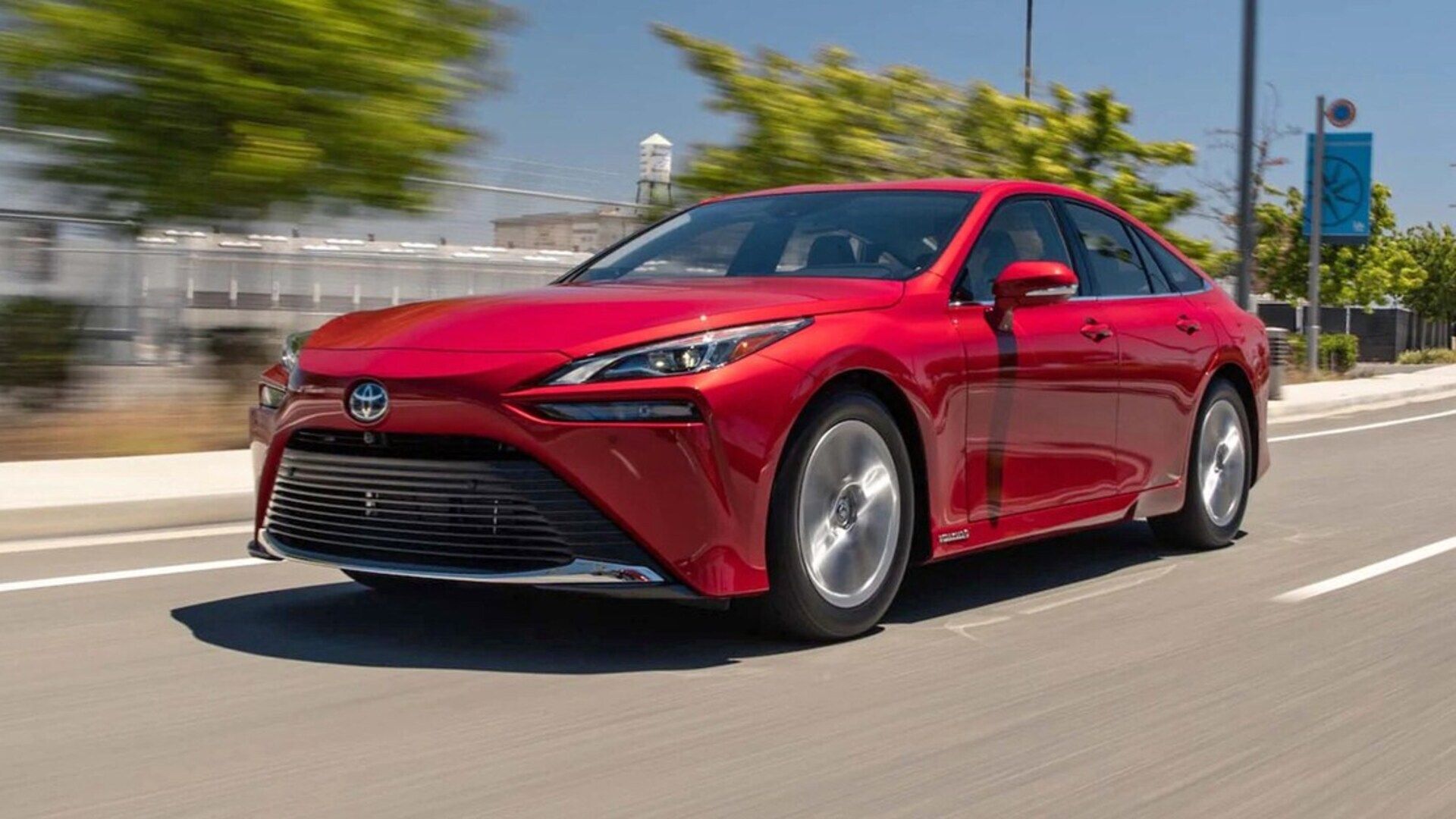
Related
Why The Rise Of Hydrogen Vehicles Is Inevitable
Hydrogen can power future electric vehicles and, with a relatively simple conversion can reduce emissions of our current internal combustion vehicles
10
Kawasaki
Kawasaki has been working on the development and manufacture of prototype hydrogen engines, refueling systems, supply networks, and hydrogen tanks. Under the HySE partnership, Kawasaki unveiled a supercharged, four-cylinder hydrogen engine that utilizes forced induction to ensure the efficient and optimized combustion of hydrogen fuel.
Hydrogen Rallying
One challenge is the lower energy density of hydrogen compared to that of gasoline. In particular, in liquid form, hydrogen needs significantly larger tanks than are traditional to achieve comparable ranges. Kawasaki’s prototype vehicle, which was tested at the 2024 Dakar Rally alongside the HySE-X1, features large hydrogen tanks in place of saddlebags. In 2024, Kawasaki Heavy Industries won the Hydrogen Technology of the Year award for its GPB17MMX 1.8 MW class 100% hydrogen-fueled, dry-combustion gas turbine.
